
The 5th Forum on Chinese Language Education in Bangladesh Successfully Concluded at University of Dhaka第五届孟加拉国中文教育论坛在达卡大学成功举行 共绘中文教育数智化与本土化发展新蓝图
2025年10月16日 ,由达卡大学孔子学院主办,南北大学孔子学院、山度·玛丽亚姆-红河孔子课堂及达卡大学现代语言学院协办,中国驻孟加拉国大使馆的指导的第五届孟加拉国中文教育论坛在达卡大学现代语言学院礼堂成功举办。本届论坛以“数智化与本土化融合——孟加拉国中文教育的高质量发展路径”为主题,吸引了来自中孟两国逾百名教育官员、学者、一线教师和中文学习者参与,共商中文教育发展大计。
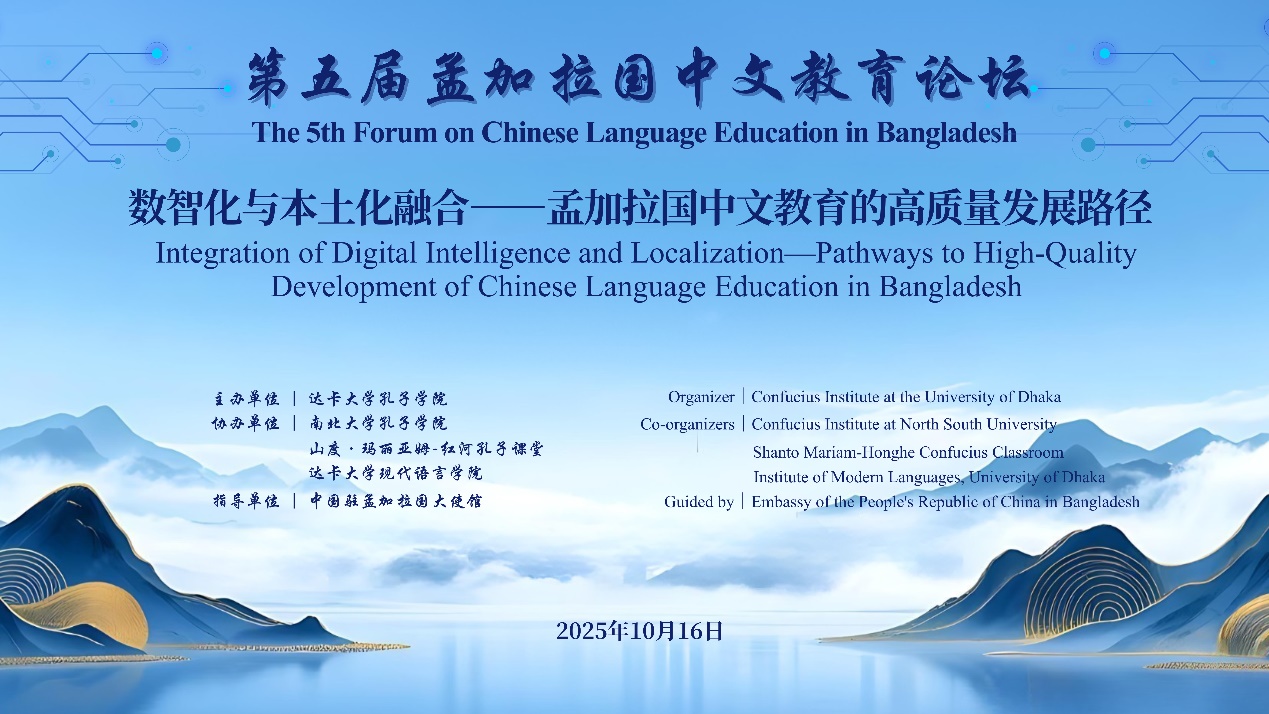
论坛开幕式上,达卡大学现代语言学院院长Mohammad Absar Kamal教授致欢迎辞。达卡大学副校长Sayema Haque Bidisha教授、国际母语研究院院长Mohammad Ashaduzzaman教授、孟加拉国行政学院联合秘书Md Nuruzzaman先生等嘉宾相继致辞,对论坛的召开表示热烈祝贺。他们一致肯定了论坛对推动孟加拉国中文教育提质升级的重要意义,并表达了对未来合作的坚定支持。
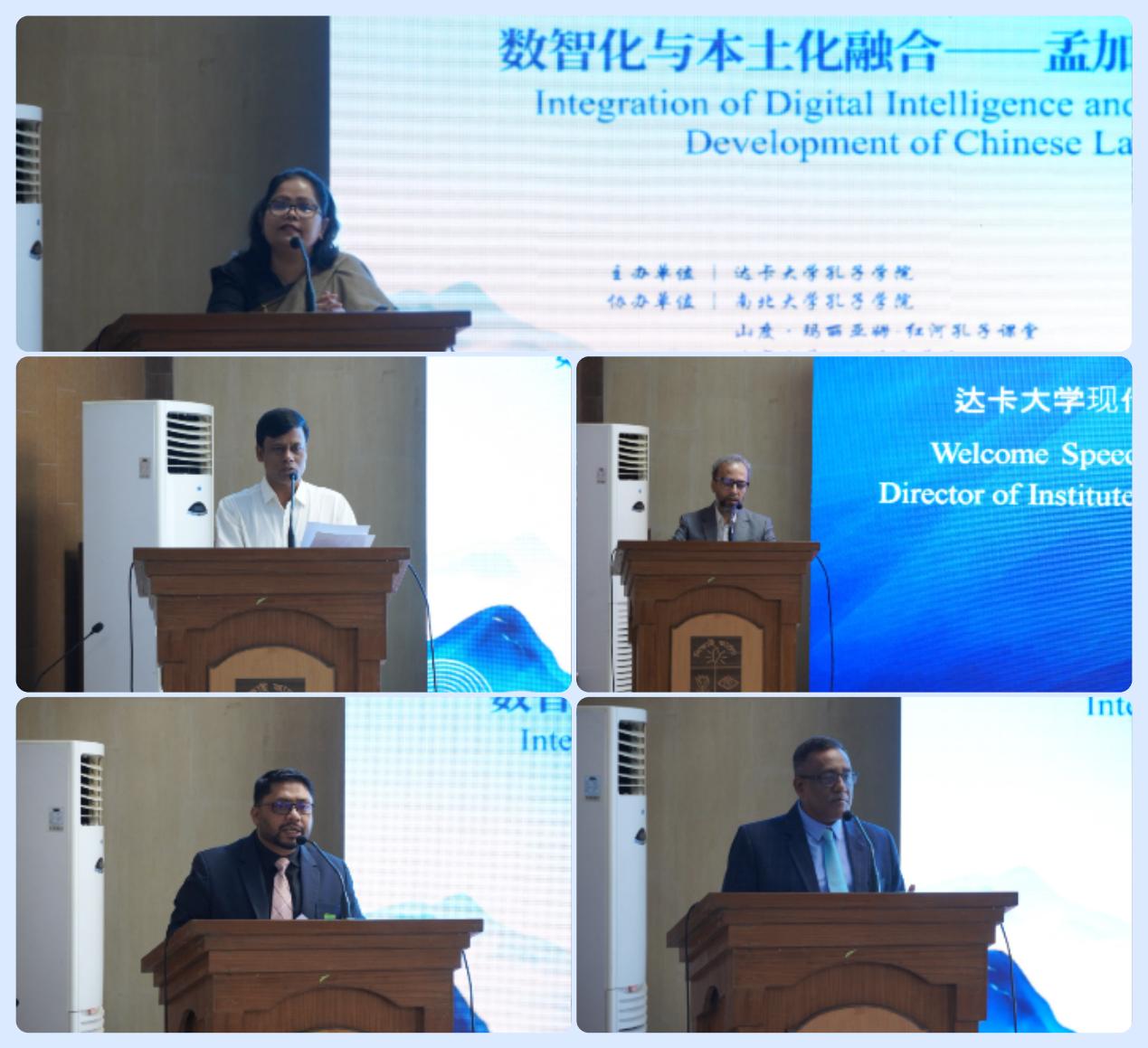
达卡大学副校长Sayema Haque Bidisha教授在致辞中特别强调了孔子学院在团结全孟中文教育机构、推动多方合作与资源整合方面所发挥的核心与纽带作用,为提升孟加拉国中文教育的整体水平做出了积极贡献。Bidisha教授还表示,通过学习中文,孟加拉国学生能够更好地了解中国丰富的历史文化与现代发展,为两国未来的深度合作培养更多栋梁之才。最后,她向本次论坛的主办方、协办单位及所有参会者表达了诚挚的感谢,感谢各方为促进孟加拉国中文教育事业发展所付出的共同努力。
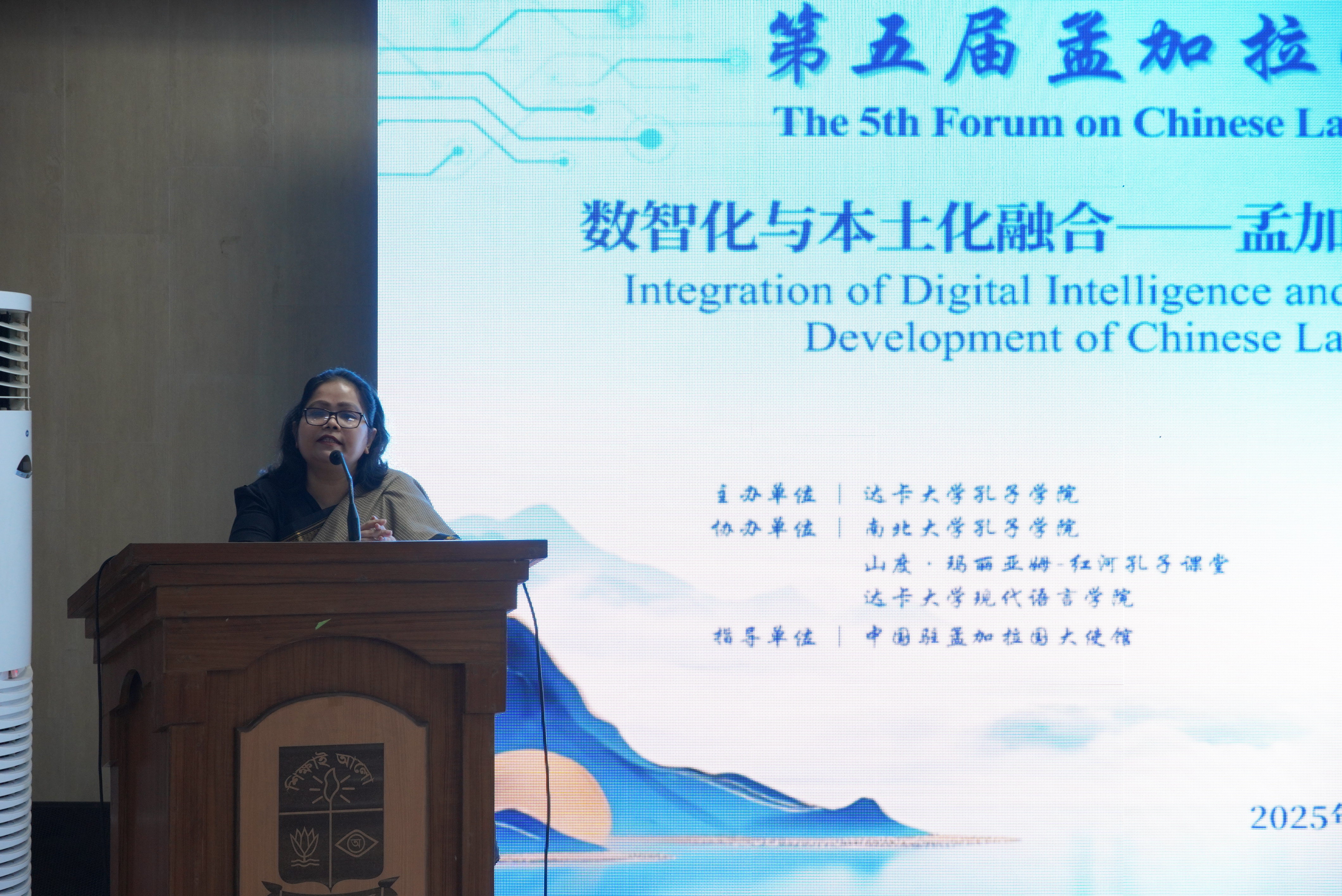
开幕式上举行了具有里程碑意义的“孟加拉国中文教师协会”成立倡议书签署仪式。该倡议由达卡大学孔子学院率先发起,旨在整合本土中文教学资源,构建教师专业发展共同体。仪式由达卡大学孔子学院中方院长杨惠主持,来自达卡大学现代语言学院、达卡大学中文系、国际母语研究院、孟加拉国职业大学、布拉克大学、“一带一路”汉语中心、中孟影响力合作组织、“说汉语”俱乐部、南北大学孔子学院、山度·玛丽亚姆-红河孔子课堂、拉杰沙希大学孔子学院及达卡大学孔子学院等12家单位的代表共同签署了倡议书,标志着协会的筹备工作正式启动,为孟加拉国中文教育的专业化与本土化发展奠定了坚实基础。
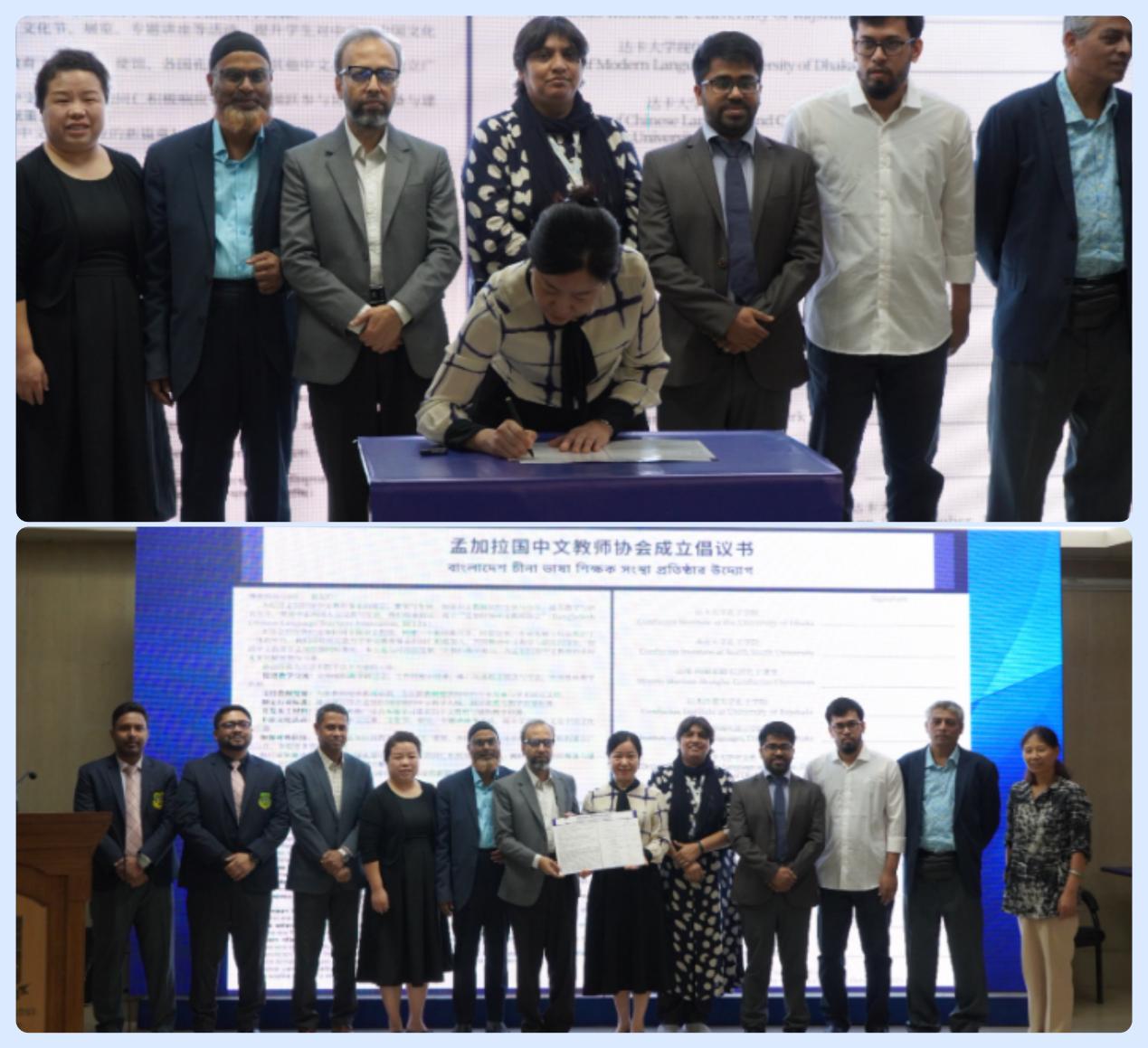
在主旨发言环节,云南大学汉语国际教育学院副教授肖锐博士以《国际中文教育数智资源赋能孟加拉国国际中文教育》为题,系统介绍了垂直大模型、教育智能体、知识图谱等前沿数智资源,并针对孟加拉国国情,提出了“技术融合、观念更新、产业升级”三位一体的本土化赋能路径,为论坛主题奠定了数智化与本土化融合的学术基调。
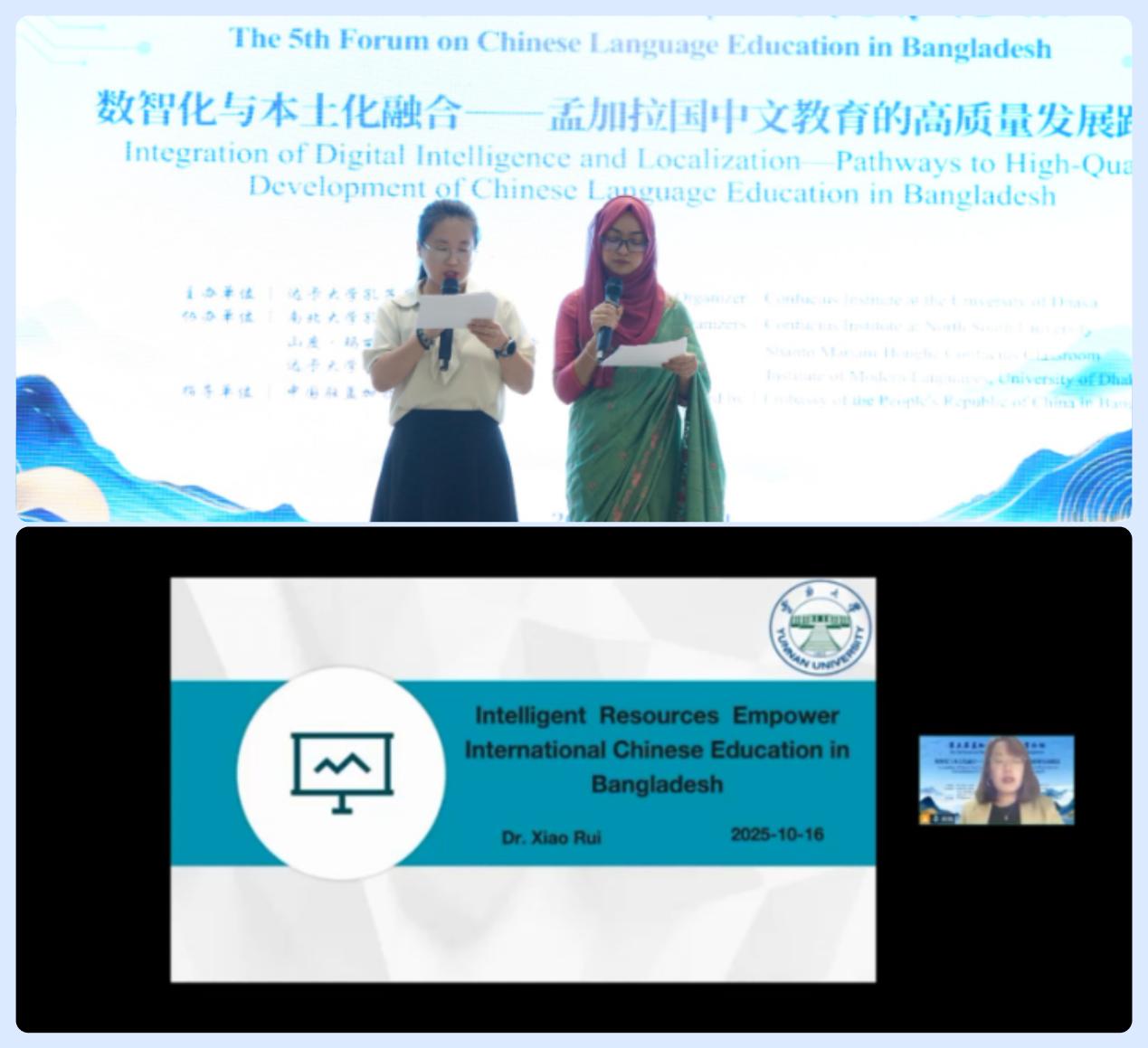
随后的专题研讨环节内容丰富,讨论热烈。第一研讨阶段由达卡大学中文系助理教授张娜主持,教师们从多维度探讨了中文教育的发展。达卡大学Mohammad Mainul Islam教授阐述了中孟教育合作对释放孟加拉国人口红利的战略意义;山度·玛丽亚姆-红河孔子课堂单金涛老师剖析了在线与混合式教学模式在孟加拉国面临的实践挑战;南北大学孔子学院赵天彬则聚焦人工智能在中文听说技能教学中的具体应用策略;达卡大学孔子学院本土教师妮鲁和南北大学孔子学院刘雅楠分别就教学本土化实践和“中文+商务”教学模式分享了宝贵的探索经验。
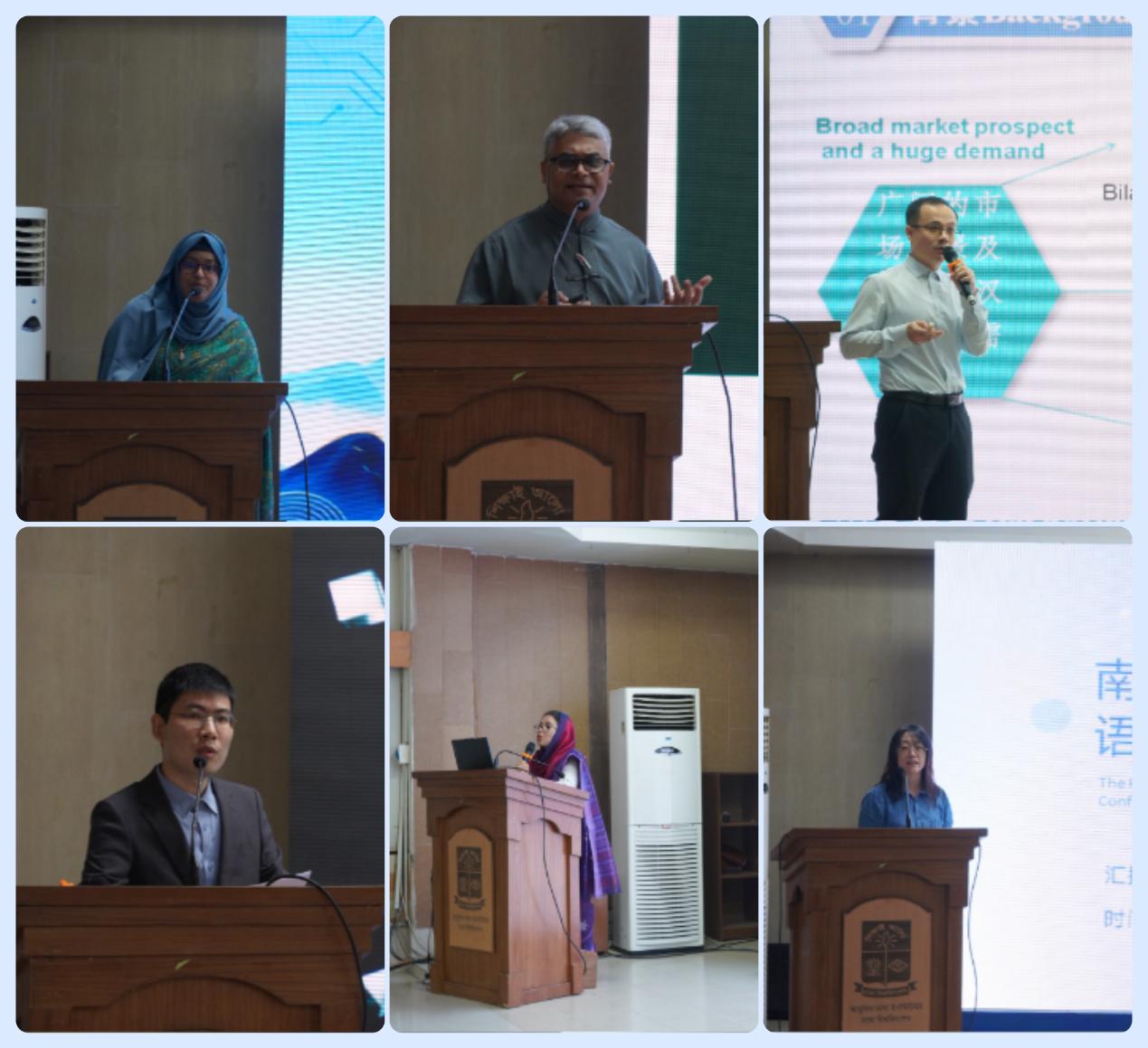
第二研讨阶段在南北大学孔子学院中方院长马晓燕的主持下,研讨转向更具针对性的教学实践与职业发展议题。达卡大学孔子学院包菲以《中高级商务汉语》课程为例,对“中文+商务”教学进行了深度反思;达卡大学中文系毕业生王俊杰基于学习者动机调查,提出了有针对性的教学法建议;南北大学孔子学院李冬分享了“中文+航空”这一新兴领域的实践探索;山度·玛丽亚姆-红河孔子课堂彭伟、达卡大学孔子学院刘露茜和南北大学孔子学院马贤锦则分别关注了公务员培训教材的适配性、中文学习者的本土就业壁垒以及孔子学院自身的转型发展路径等现实问题。
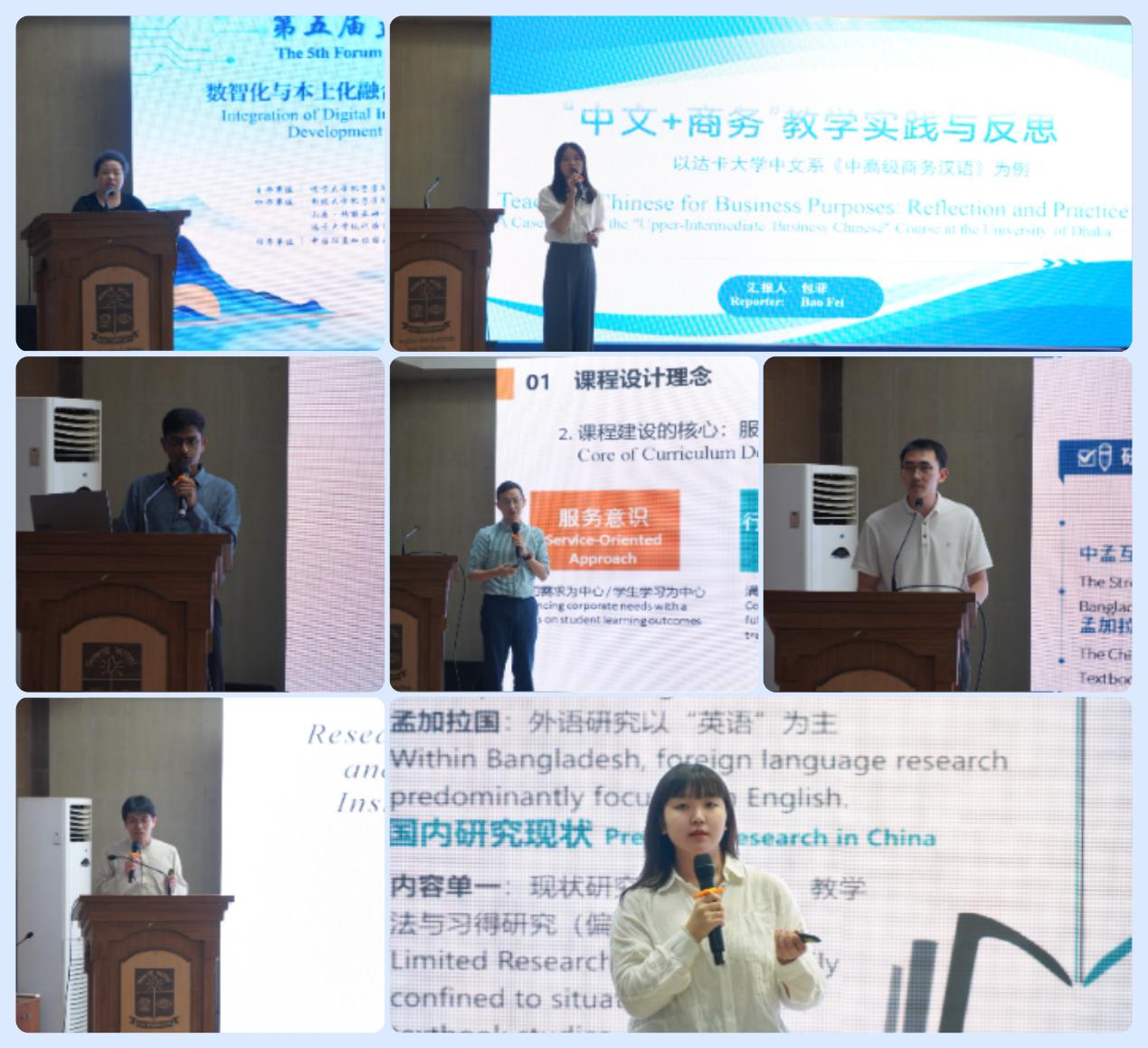
本次论坛不仅为孟加拉国中文教育工作者提供了一个高质量的交流与学习平台,更通过发起成立中文教师协会,凝聚了行业共识,为该国中文教育在数智时代的可持续、高质量发展注入了新的强大动力。
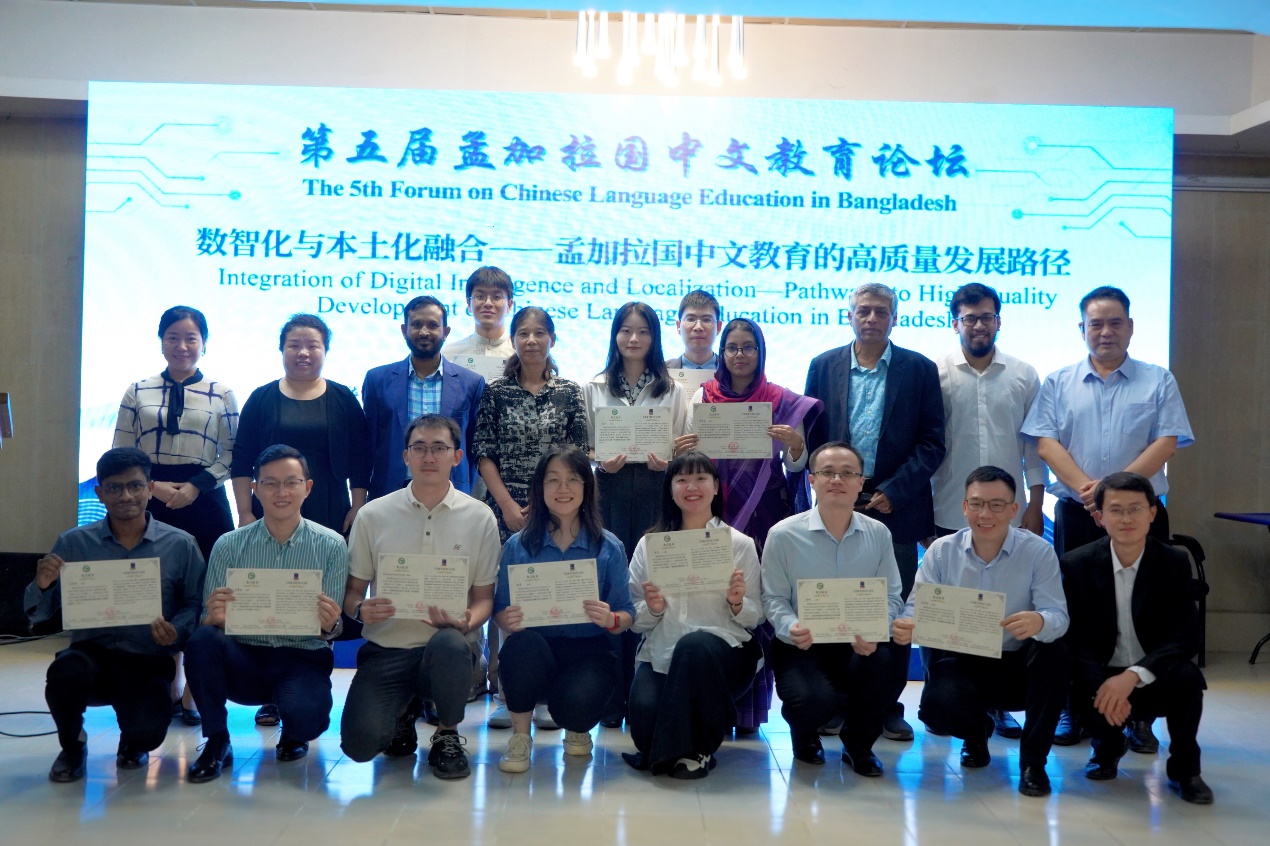
On October 16, 2025, the 5th Forum on Chinese Language Education in Bangladesh, hosted by the Confucius Institute at the University of Dhaka and co-organized by the Confucius Institute at North South University, Shanto Mariam-Honghe Confucius Classroom, and the Institute of Modern Languages, University of Dhaka, under the guidance of the Embassy of the People’s Republic of China in Bangladesh, was successfully held at the Auditorium of the Institute of Modern Languages, University of Dhaka. Under the theme “Integration of Digital Intelligence and Localization – Pathways to High-Quality Development of Chinese Language Education in Bangladesh,” the forum brought together over a hundred participants, including education officials, scholars, teachers, and Chinese language learners from both countries, to discuss the future of Chinese language education.
The opening ceremony featured welcome remarks by Prof. Dr.Mohammad Absar Kamal, Director of the Institute of Modern Languages, University of Dhaka. Addresses were also delivered by distinguished guests including Prof. Dr. Sayema Haque Bidisha, Pro-Vice Chancellor (Admin) of the University of Dhaka; Prof. Dr. Mohammad Ashaduzzaman, Director of the International Mother Language Institute; and Mr. Md Nuruzzaman, Joint Secretary of the BCS Administration Academy. They unanimously affirmed the forum's significance in enhancing the quality of Chinese language education in Bangladesh and expressed strong support for future collaboration.
A landmark event of the opening ceremony was the signing ceremony for the initiative to establish the “Bangladesh Chinese Language Teachers Association” (BCLTA). Initiated by the Confucius Institute at the University of Dhaka and chaired by its Chinese Director, Dr. Yang Hui, the initiative was signed by representatives from 12 institutions, marking the official start of the association's preparatory process.
The forum's agenda included a keynote speech by Associate Prof. Dr. Xiao Rui from Yunnan University, titled “Intelligent Resources Empower International Chinese Education in Bangladesh”. Dr. Xiao provided a systematic introduction to cutting-edge digital resources and proposed a trinity empowerment path of “Technology Integration, Concept Renewal, and Industry Upgrade” tailored for the Bangladeshi context.
The subsequent panel discussions were rich in content and engaged lively debates. Session 1, moderated by Assistant Professor Ms. Jannatun Naher, explored topics ranging from the strategic role of Sino-Bangladeshi educational cooperation in achieving demographic dividend to the challenges of online and blended teaching modes, application strategies for AI in teaching listening and speaking skills, localization practices, and explorations of “Chinese + Business” models.
Session 2, chaired by Ms. Ma Xiaoyan, Chinese Director of the Confucius Institute at North South University, delved into more specific teaching practices and career development issues. Presentations included case studies on “Chinese + Business” and “Chinese + Aviation” courses, pedagogical approaches based on learner motivation surveys, research on the adaptability of teaching materials for civil servant training, local employment barriers for Chinese learners, and the transformation development of Confucius Institutes.
This forum not only provided a high-quality platform for exchange and learning among Chinese language educators in Bangladesh but also, through the initiative to establish the BCLTA, consolidated industry consensus, injecting new and powerful momentum for the sustainable and high-quality development of Chinese language education in the digital intelligence era.